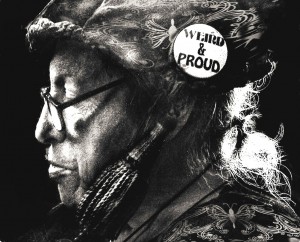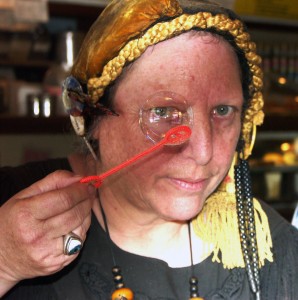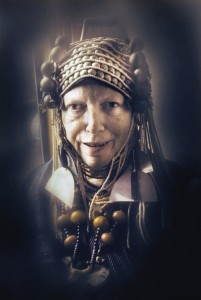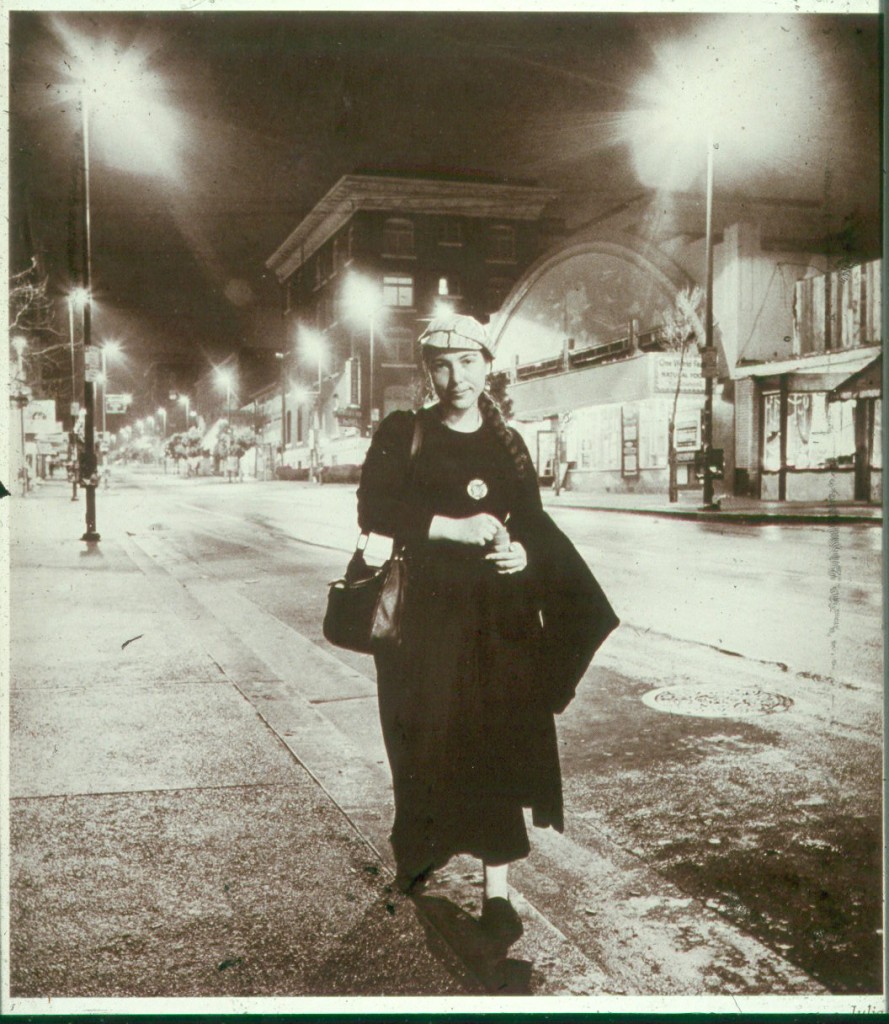The Ghosts of 2018
THE GHOST OF 2018 PAST
What the skin ripped off bone drilled organs rearranged and deep breaths, deep breaths required, water is essential but especially in grief, even over yourself or part of yourself flown down the cataract to stone truth, what truth is that if the milkweed is crushed and the beautiful monarch dissolves in air, best to cocoon for the bitter season, best to swoon in an acrid bath and await nectar, best to bide skinless and declanned until the new stone rolls in the new bone rolls in the new flesh rides a stream of heart beats, heart beats, heart beats.
~ ~ ~
 JULIA VINOGRAD
JULIA VINOGRAD
(December 11, 1943 – December 5, 2018)
Julia’s gone and it feels like the end of an era. I didn’t expect that, I knew she would pass soon and it didn’t occur to me once, but it really, deeply does feel that way. Julia was the core of something, still momentarily is, a beating heart that moved a lot of psyches forward through momentum of poetry. Those psyches will continue to move forward, cause that’s what psyches do, but they’ll have to get used to a different torque, a slightly different engine propelling them. Because Julia Vinograd was a poetry engine – that’s what she did, and that’s all she did. She lived her life for poetry, a rare commodity in the human strain. And she did so in an extraordinary manner, through sheer force of necessity. Because let’s face it, it’s not as if she had a choice.
For Julia, poetry came first, second, and always, at least it seemed to. She lived with a disability most of her life, leg twisted from childhood polio, which translates as more than seven decades of pain, discomfort, and challenges, which were definitely present in her life, sometimes more present than others, especially when she walked, more and more slowly as the years went on. (I’m burning a snail-shaped candle for her on my altar.) But at most times, it was easy to forget her disability, because she didn’t let it define her – she let her poetry do that. She wrote constantly, at least from her twenties onward, got by on little in a room that filled slowly for decades with artwork and power objects and baubles, and lived to write and read her work. I think her sixty-four (or more) books are testament to that. She lived in and through her work, creating a world of her seeing. In a way her work is a testament to seeing, to the act and enactment of seeing. She strove to present the world she saw with utmost honesty, unshrouded by presumption or conceit. Often wry, and honest always. Ask anyone whose work she didn’t care for or think was up to par, because she would tell ya. Her work was plainspoken and vivid, much like herself, but not naive, especially when it came to human nature or spirit. Whether her poems were narrative or fantastical, and she had plenty of both, sometimes blended, they were all, at core, poems of observation, and the reader knows they can trust that she says what she sees, clearly and concisely. She said early on that she’d hang out on the streets of Berkeley and wait for a poem to walk by. Sometimes it seems to me that many of her poems had been hanging out for eons waiting for Julia to happen by.
I met Julia in late 1983 at the Old Spaghetti Factory readings in North Beach, San Francisco. I was a punk whelp of a poet come fresh to that City of Light and Sound to find the world. Through the next decade I knew Julia primarily through many, many readings at many venues – the Spaghetti Factory, the Coffee Mill, Chelsea Square, the Meat Market, Cafe Babar, and Paradise Lounge I recollect most strongly – and the occasional poetry party, but we never socialized one-on-one outside the poetry world. In a way, she was never outside the poetry world, and she was an anchor to the poetry community from the start. In 1993, I wandered off to explore the Lands Beyond the Fog, returning only twice in the next fourteen years. In 2001, I showed up unexpectedly at Poetry Above Paradise, having driven there from Brooklyn (yes, that Brooklyn), all grown up and sporting sideburns and a big black motorcycle jacket. Julia didn’t recognize me until I went up to say hello, upon which she exclaimed, “You seem like a real person now!” I’ll never know what she meant by that. Then in 2005, I came through to visit and show around my new book, and did a reading at a fancy artspace in Oakland, and there was Julia, front and center, grinning like a Cheshire and waiting for the open mic.
I moved back to the Bay Area in 2007, and back to the East Bay in 2009, and in the years since, I got to know Julia, and her sister Debbie, a Berkeley painter with similarly prolific drives, a lot better. I became one of Julia’s default drivers, as she because less and less able to navigate public transportation, mostly to and from readings but occasionally for other errands as well. We went to lunch occasionally or out after readings, and struck up a stronger friendship and a running conversation. We’d discuss poetry, and poetry, and politics, and poetry, and people, and poetics, and poetry. She could be inscrutable, as many people saw her, I think, reflected in her standard garb of black robes, gold tasseled medieval cap, rings and beads and bones and buttons and piercing blue eyes – inscrutable, yes, especially when it came to personal matters – but not always, underneath that garb and her public figurehood there was after all a real person, and after so many years she came to seem like one. She could be intractably stubborn, sometimes to her detriment; often blissfully unaffected by the intrigues and follies of our madding species; and a proud bearer of the Luddite flag, in just about the last generation to boast a cavalcade of Luddite devotees. About as tech savvy as she got was an answering machine and a TV remote, and she had trouble with those. She wrote, sometimes I think in a frenzy, on a manual typewriter that certainly didn’t have spellcheck. And she was never on the internet, though she did gaze at it mystified once or twice – which means that she has virtually no digital footprint, which in this world practically makes one an endangered species. And here’s where that end of an era thing comes in, because Julia was an old school writer with an old school life, able to step away from the world and into her thoughts like, I fear, very few in the future will be able. It’s a seller’s market these days for focus, and concentration, and quietude, and it’s not getting quieter any time soon. And worse than that, there’s a greater and greater belief that if something’s not on the internet, it doesn’t exist and never existed, a belief which I suspect will grow and grow until the electricity finally goes out. Which it will. Julia Vinograd knew that, and was ready for it, with her cap, and her typewriter, and all those beautiful books.
Those books, that trunk of speaking wood, they live on, and will live on, and she lives on and moves the world through them, sure as rain. Someone should encase one full set of them in resin as a monument to just how driven one human can be. When I’d call her on the phone, which was frequently over the last several years, she’d almost always start our conversation by saying, “I have a new poem. Wanna hear it?” And she did. Julia always had a new poem, because she had to. She was easily the most driven poet that I’ve ever met. Bon voyage, dear, and happy driving.
~ ~ ~
THE GHOST OF 2018 PRESENT
If I know where I am, I’m either dreaming or I’ve been hit. Dreaming my way into another room, or hit by a wall table door fist kiss eye. Hit by a kiss. Dreaming of rooms. Speaking in pieces and stepping, stepping, stepping into rain. Space around me vorticular, engaged, singing. If I know where I am, I am singing. I am singeing. I am speaking in curves. What eye opens widely. What way through the door. What table to lie on. What fist is a nest. What wall for a pillow. What kiss lets me know where I am.
~ ~ ~
NEW VIDEO :: You can find a supercool vid of my performance from this October at the 11th Annual Davis Jazz & Beat Festival, working with musicians Keith Cary on cello and Heath Proskin on bass, both improv’ing like mad, baby. I mean, it’s like hella beat, right there at the top of the Performance page. Check it out and get those fingers snappin!
REFLECT :: November finished up a whirlwind several months with the end of the great weather for MEDIA 2018 West Coast Tour with readings in Oakland and San Francisco on the 1st and 2nd, followed quickly by Babar de los Muertos on the 8th, a reading with COPUS and Tongo Eisen-Martin and lots of music on the 10th, and hosting a sudden giant benefit on the 11th for Julia Vinograd, who’d been diagnosed with terminal cancer (and who died peacefully exactly 24 days later). In the midst of all that, the thick toxic smoke from the Camp Fire in the Sierras settled on the Bay Area, making the air brown and acrid and hazardous and the atmosphere fairly apocalyptic for more than two weeks. That totaled 19 readings (not including 3 Poeteas) since the beginning of August, with one left to go. That was the debut of my new queer talk and reading series #we on the 28th, a long form reading which I’d been working on for nearly six months. It featured amazing trans writer and activist Julia Serano, who read some essayic work on inclusivity and exclusivity in the queer community, along with an extremely funny excerpt from her novel in progress. The other feature was myself, first time I’ve ever done that with a series that I’m curating, because I figured that if I’m going to ask folks to prepare potentially personal talks for the series, then I’d better go first. Which I did, giving a talk I’d been working on for a couple of years about marginalization that I’ve experienced in the mainstream gay community, and a couple of very personal revelations I thought it about time to speak in public, as well as a new poem delineating my perspective on queerness, titled also “#we”, which I’ve posted on the Fresh Words page this month. The readings were spot on, so glad for that, and the audience was so engaged that they sat actually riveted through us each speaking for half and hour, then for another half hour of Q&A, in which they raised the bar with decisive and astute questions. I was thrilled with this last part, since I wasn’t sure how well a Q&A would go over after an hour without a break, but it seemed the perfect format, and folks have commented how refreshing it was to have a long form event that really goes into detail about peoples lives. The attendance itself was a lot lighter than I’d hoped, considering that I’d been telling folks about it for months with a lot of enthusiastic response, especially as there was zero representation from the broader political, social issue, and identity focused literary community that I’ve been involved with and supportive of for a number of years. This definitely left me somewhat disappointed and down for several days, especially after all the work I’d done and energy put out and all the readings I’d been involved with for months, many of which I’d hosted for others. Not mad at anyone, by the way – I’ve missed my share of readings that I’ve wanted to be at, and I know how that goes – just feeling generally disregarded. But the folks that did show were beaming by the end and seriously appreciative of the format and detail and sharing and the conversation that we all got started, and I so have to thank them for that. Your positive and supportive energy definitely helped to dissipate the disappointment after a few days, and turn it to determined introspection. So I think, after all this, I’m going to take some time off from the literary melee of the Bay Area, and re-examine my perspective on and position in the community. I have no events scheduled until February, which I’m very thankful for, because it’s definitely time for some serious quietude.
~ ~ ~
THE GHOST OF 2018 FUTURE
Walk on water, walk on air, walk on madness, just walk, however you can, step and step through veils of smoke, of disdain, of indifference, step like you mean it lest the rings have it, lest the eyes have it, lest the teeth have it and they will, hung on a string, hung on a neck, strung and adorning a breast of black muslin, a breast of sturdy withered dugs that sings, sings and means it, rollicks, canticles, discerns, delineates, and states, and steps, and steps, and steps doggedly on.
Sincerely,
Richard


